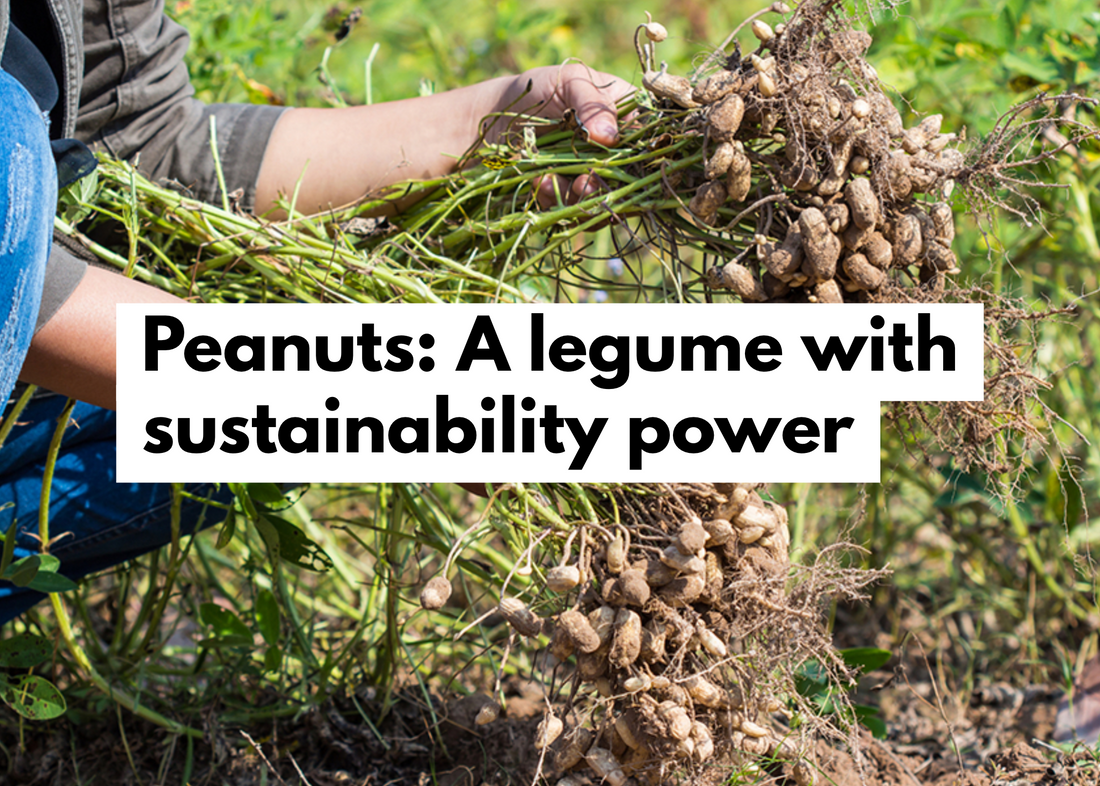
The humble peanut evokes images of ballpark snacks, lunchbox sandwiches and spreads — but it’s much more.
In fact, the tiny legume is an underrated sustainable plant powerhouse. Not only does growing, harvesting and processing peanuts use minimal resources compared to other nuts, but peanuts also promote soil fertility while producing a flavorful, protein-rich crop.
Unlike walnuts, pecans and other true nuts, peanuts are a legume crop grown directly in the soil like soybeans and lentils. As peanuts grow and mature in the soil, they also enrich the earth with nitrogen — a key nutrient for growing fruits, vegetables and other nutrient-intensive crops.

THE CONNECTION BETWEEN SOIL HEALTH AND PEANUTS
According to The Peanut Institute, many farmers rotate their cotton and corn crops with peanuts to replenish the soil because of peanuts’ nitrogen-fixing ability.
“We need very sustainable rotational systems in agriculture to keep weeds, insects and disease pests in a controllable state,” Severn Peanut Co. agronomist Wayne Nixon said in a news release. “The nitrogen benefit of the legume, and the fact that the residue lasts in the soil for years, makes peanuts an over-achiever by putting in the soil what other crops take away.”
While most crops deplete the soil of nitrogen, peanuts replenish nitrogen, fostering nutrient-rich loam. Peanuts naturally require less fertilizer to grow an abundant crop, which helps reduce agricultural inputs and greenhouse gas emissions from production.
What’s more, peanuts add up to 250 pounds of nitrogen to soil per acre and are naturally resistant to diseases and pests like nematodes, according to the release.
“Less dependency on chemicals and fertilizers saves the farmer money and enhances sustainability for all,” Nixon said in the release.
The American Peanut Council cites uses for the peanut beyond consumption in its most recent sustainability report:
- Pelletized peanuts made from peanut hulls are used for animal feed and fuel.
- Peanut “hay” from discarded plant vines can be incorporated back into the soil as green manure or given to livestock as feed.
- Biodiesel to power vehicles is produced from used or discarded peanut oil.
- Peanut skins have uses for their antioxidant and polyphenol-rich properties.
Peanuts are truly “zero-waste” crop, according to Severn, N.C.-based peanut grower Hampton Farms.
The water needed to produce peanuts is another sustainability win for the little legume. In a comparison with the water footprint of other major nuts grown in the U.S., the National Peanut Board’s shows that the peanut leads the category as a water-conserving nut crop.
To produce 1 ounce of shelled nuts, it takes the following gallons of water:
- 3.2 gallons for shelled peanuts.
- 23.6 gallons for shelled pistachios.
- 26.7 gallons for shelled walnuts.
- 28.7 gallons for shelled almonds.
Information taken from: www.thepacker.com

